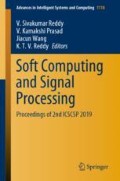Abstract
Electric vehicles make no noise because of their inherent nature of silently operating components. This behavior is the same irrespective of speed change. In highways, there is enough protection for separating pedestrians and vehicles. But in city and urban road scenarios, pedestrian safety is compromised. EVs operate at slow speeds in these roads and are very silent. Under such operating conditions, recognizing the vehicle’s presence becomes tedious. This poses a safety concern for vulnerable pedestrians like visually impaired people who mostly rely on auditory signals. The IC engine noise is the most commonly perceived sound for the identification of vehicle’s presence. Sound signatures have been synthesized keeping in mind the speed of the vehicle and audible range of human beings. The key parameters for the sound generation are picked up from the arbitrary combustion engines. The developed engine sounds were evaluated through psychoacoustic tests to match the requirements mentioned above.
Access this chapter
Tax calculation will be finalised at checkout
Purchases are for personal use only
References
Barton, B.K., Ulrich, T.A., Lew, R.: Auditory detection and localization of approaching vehicles. Accid. Anal. Prev. 49, 347–353 (2012)
Dortch, M.H.: Federal Motor Vehicle Safety Standard No. 141, Minimum Sound Requirements for Hybrid and Electric Vehicles. https://www.federalregister.gov/documents/2018/02/26/2018-03721/federal-motor-vehicle-safety-standard-no-141-minimum-sound-requirements-for-hybrid-and-electric
Wall Emerson, R., Kim, D.S., Naghshineh, K., Pliskow, J., Myers, K.: Detection of quiet vehicles by blind pedestrians. J. Transp. Eng. 139, 50–56 (2013)
Fu, Y., Murphy, D.T.: Spectral modelling synthesis of vehicle pass-by noise. In: InterNoise 2017 (2017)
Min, D., Park, B., Park, J.: Artificial engine sound synthesis method for modification of the acoustic characteristics of electric vehicles. Shock Vib. 2018, 1–8 (2018)
HEAD Acoustics Application Note - 02/18: Psychoacoustic Analyses I—Loudness and Sharpness Calculation. https://www.headacoustics.com/downloads/eng/application_notes/Psychoacoustic_Analyses_II_e.pdf
Serra, X., Smith, J.: Spectral modeling synthesis: a sound analysis/synthesis system based on a deterministic plus stochastic decomposition. Comput. Music J. 14, 12–24 (1990)
Narayanan, G., Kurup, D.G.: Detection of a real sinusoid in noise using differential evolution algorithm. In: Advances in Intelligent Systems and Computing. pp. 77–83 (2019)
Lakshmikanthan, C., Ramesh, N., Sane, O., Lakshminarasimhan, A., Purusoth Parthasarathy, S.: An assessment of in-cabin noise and vibration transfer in a hatchback. Int. J. Veh. Noise Vib. 12, 292 (2016)
Rosplesch, A., Tousignant, T.: Optimization of electric vehicle exterior noise for pedestrian safety and sound quality. In: Bargende, M., Reuss, H.C., Wiedemann, J. (eds.) 18. Internationales Stuttgarter Symposium, pp. 1321–1333. Springer Fachmedien Wiesbaden, Wiesbaden (2018)
Acknowledgements
All procedures performed in studies involving human participants were in accordance with the ethical standards of the Research Advisory Committee/Ethics Committee of Amrita Vishwa Vidyapeetham. Informed consent was obtained from all individual participants included in the study.
Author information
Authors and Affiliations
Corresponding author
Editor information
Editors and Affiliations
Rights and permissions
Copyright information
© 2020 Springer Nature Singapore Pte Ltd.
About this paper
Cite this paper
Dipika, V., Lakshmikanthan, C. (2020). Sound Inheritance for Electric Vehicles. In: Reddy, V., Prasad, V., Wang, J., Reddy, K. (eds) Soft Computing and Signal Processing. ICSCSP 2019. Advances in Intelligent Systems and Computing, vol 1118. Springer, Singapore. https://doi.org/10.1007/978-981-15-2475-2_55
Download citation
DOI: https://doi.org/10.1007/978-981-15-2475-2_55
Published:
Publisher Name: Springer, Singapore
Print ISBN: 978-981-15-2474-5
Online ISBN: 978-981-15-2475-2
eBook Packages: Intelligent Technologies and RoboticsIntelligent Technologies and Robotics (R0)

